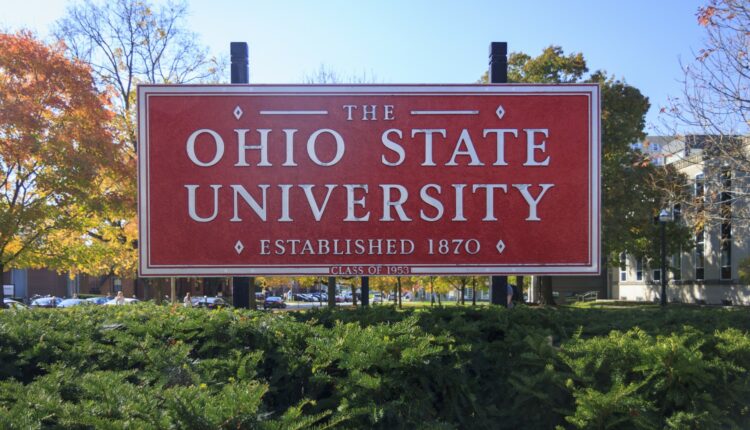Ohio State University: Ohio State establishes new education and research center for advanced semiconductor fabrication
The Ohio State University will lead a multi-institutional, interdisciplinary education and research center to advance the fabrication and development of semiconductors and next-generation device technologies.
The new center will lay the foundation for a sustained, highly skilled and diverse semiconductor manufacturing workforce by developing comprehensive experiential learning frameworks for both graduate and undergraduate students, all while paving the way for leading-edge device technologies through state-of-the-art research.
Intel announced a funding award today for the Center for Advanced Semiconductor Fabrication Research and Education (CAFE) of $3 million over three years. This grant comes on the heels of Ohio State convening the Midwest Regional Network to Address National Needs in Semiconductor and Microelectronics, a network of 12 Midwest colleges and universities developing innovative solutions in higher education to support domestic semiconductor education, research and workforce needs.
Earlier this year, Intel announced it will invest more than $20 billion to construct two new chip factories in Ohio. Intel will invest $50 million directly in institutions of higher education in the state, while another $50 million investment from Intel will be matched by $50 million from the National Science Foundation in national funding opportunities.
“The Midwest has extensive experience in serving as an economic driver and support system for some of this nation’s most important undertakings, dating back to World War II and beyond,” said Ohio State President Kristina M. Johnson. “We look forward to reprising that role and helping America retake its rightful place as a leader in the semiconductor industry through this important collaborative effort to train the workforce of tomorrow. By working together, we are much greater than the sum of our parts, and the proof of that will be in the highly trained experts who will emerge from this program prepared to take any challenge and succeed.”
CAFE will partner Ohio State with nine other institutions in the state, including Ohio University, the University of Cincinnati, Central State University and Wilberforce University, as well as the education consortium Five Colleges of Ohio, Inc., composed of Denison University, Kenyon College, Oberlin College, Ohio Wesleyan University and the College of Wooster.
By bringing together these institutions of higher education into a single, interdisciplinary center, CAFE will provide semiconductor research opportunities to students from diverse backgrounds and disciplines, who can share in the access to world-class facilities in an experiential learning environment with a team science approach.
Steven Ringel
Steven Ringel
CAFE will be operated at Ohio State by the Institute for Materials Research (IMR), which promotes and supports materials and manufacturing research and initiatives across disciplines and colleges at the university. In addition to IMR operating Ohio State’s premier semiconductor fabrication facilities, the institute’s mission is to build large-scale programs that leverage the multidisciplinary strengths of Ohio State. IMR executive director Steven Ringel, professor in Ohio State’s Department of Electrical and Computer Engineering and associate vice president for research, is the lead principal investigator.
CAFE will offer exceptional opportunities for undergraduates to learn through hands-on research experience. Manufacturing internships for students, as well as graduate and postdoctoral research associateships, will further immerse and train tomorrow’s semiconductor workforce in a variety of real-world settings.
The new research center’s multidisciplinary, diverse and interactive culture will also be enhanced through its coordination with the National GEM Consortium and the Ohio Five-OSU Summer Undergraduate Research Experience (SURE) program.
The center will create new training programs and explore next-generation semiconductor device fabrication with activities aligning with many areas of strength within Ohio State’s semiconductor ecosystem: materials synthesis, characterization, device design and processing.
“The research we will carry out as part of the Intel-funded CAFE center will benefit our students, faculty and staff who are engaged in semiconductor research tremendously,” said Ringel. “The structure of CAFE will enable the convergence of both graduate and undergraduate students in an environment of interdisciplinary research and experiential learning that will provide exciting opportunities for current and future generations of students to get in on the ground level and cultivate the future of America’s silicon heartland.”
At Ohio State, access to world-class facilities related to semiconductor fabrication and research will afford experiential learning environments with a team science approach. Primary shared facilities central to CAFE’s research and education efforts at the university include Nanotech West Laboratory, the Semiconductor Epitaxy and Analysis Laboratory, the NanoSystems Laboratory, and the Center for Electron Microscopy and Analysis.
“We are excited to have this opportunity in Ohio’s semiconductor ecosystem, so diverse teams of faculty, staff and students can showcase their talent by having access to state-of-the-art facilities and research experts in semiconductor fabrication,” said IMR Director of Innovation Jay Sayre, who leads the CAFE student experiential plan. “This new, unique learning experience will introduce undergraduate and graduate students, and will inspire them to seek new horizons of research in academic labs and create a sustained pipeline of talent entering the semiconductor industry.”
CAFE anticipates broadening its reach to Ohio colleges and universities currently not part of the initial effort as it evolves its core program through event series that include lab training sessions and student-centric symposiums.

